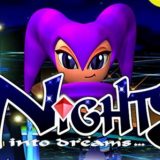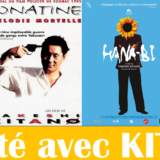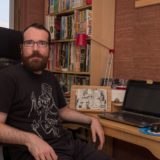[English Interview] Hotei TOMOYASU, the Japanese guitar hero
As a fan of rock music, we are used to Occidental guitar heroes, but we should be aware that every country has their own. Hotei Tomoyasu is one of those, and even if you don’t know his name, you’ve already heard his songs one day or another.
Living in London now, and ready to conqueer the western audience, this monumental man will play in many English festivals this Summer, including the Cornbury Music Festival held in Oxfordshire between July 4th and July 6th.
–Hotei TOMOYASU–
Journal du Japon had the privilege to interview the electric samurai for a very long confession.
Journal du Japon : First of all, can you introduce yourself to those who don’t know you yet?
Hotei Tomoyasu : At 187 cm height, I’m a guitarist, and an especially tall one by Japanese standards! I’ve had a career of more than 30 years in Japan, and even though people around the world may have heard some of my music, I suspect few people know my name outside of Japan. Have you seen Tarantino’s film Kill Bill? The main theme song, Battle Without Honor or Humanity is an original song that I wrote, produced, and performed. In chatting with my taxi driver today, he didn’t know my name, but he definitely knew this song. I’ve been working for a long time in Japan, but now I live in London and am focusing on my global career, working on new music and live performances. I’m not a technical guitarist, but I think a good guitarist is one who can make people dance.
When you were young, who were your heroes and why?
My three biggest idols are T.Rex, David Bowie, and Roxy Music. I listened a lot to progressive records like King Crimson, YES, and EL&P, and was also influenced by British pop like 10cc, Be bop deluxe, Steve Harley & Cockney Rebel, Deaf School, etc. and other artists such as Ray Parker Jr., Nile Rodgers, Adrian Belew, Bill Nelson, Andy Partridge, Andy Gill, Jeff Beck, Prince, and others.
How did you make the decision of having a musical career?
It really started when I was about 14 years old, and I walked past a local music shop in my neighborhood and saw a black and white poster of Marc Bolan (singer/guitarist of the T.Rex). He had this look of ecstasy holding a guitar. Seeing that image, I felt that the guitar must be a way to break out into the world, and to feel free and happy. I was really inspired by this. In the 70s, all of the main bands featured lead guitars. Listening to any record at the time, I could hear such cool riffs. The day I saw Marc Bolan’s poster, I stole 100 pounds from my mother’s purse and bought my very first guitar- a Stratocaster with amp. She knew I did it, but she didn’t say anything. If it weren’t for my mother’s wallet being there that day, I might not have become a guitarist!
Did your foreign roots have an impact on your music, and if so, in what ways?
My father was Korean, but my mother was Japanese and I was born and raised in Japan. I can’t speak Korean, and to be honest I don’t really feel that I have much sense of Korean culture and history inside of me. But I suppose there are moments when I really want to eat Korean food?!
What inspires you to compose your songs?
Often I start exploring by putting a guitar riff together with a beat. In the beginning it feels a bit like starting to create something new with a pure white canvas, and then in the end, completing a picture that you could not have imagined. With films or works that are being produced by someone else, if the theme or concept has already been decided, there are times when it can then be easier to create. Searching within yourself to create something is not an easy task.
You have worked with a lot of foreign artists, but what is the collaboration that you cherish the most and why?
Having the chance to play with both David Bowie and Roxy Music was amazing as these are really two of my idols. But most recently I played as a guest artist on stage with The Rolling Stones this past March and that was absolutely amazing. Such a dream experience!
Speaking of that, can you tell us a bit more about that performance?
Standing on stage and surrounded by the members of The Rolling Stones was like being a figure in Madam Tussaud’s wax museum. It just couldn’t be real. To play together with The Stones must be a dream come true for all musicians. So unrealistic, it would be like qualifying as an astronaut and flying to Mars. They were all such gentlemen, so professional and with great personality. I’ll never forget this incredible experience.
You’ve also collaborated with Momoiro Clover Z, which was quite a surprise! Can you tell us the story of this astonishing meeting, and what did you gain from this experience?
I think they really have a different energy from the many other idol groups in Japan, and it’s really obvious when you see their live performance (they are actually singing all of their songs when they perform!). It was quite a unique proposal, when I was asked to create for them one song that would essentially summarize within it the essence of 4 or 5 songs. I have always liked theatrical music, and so for me this was a really fun experience.
As you said previously, you’re mostly known for your song Shin jingi-naki tatakai(or Battle Without Honor or Humanity) which is featured in Quentin Tarantino’s Kill Bill Vol.1. How did you end up on the soundtrack?
This is an original song that I composed and played for a Japanese movie, and then Tarantino saw the movie and contact my office asking to use it for his film Kill Bill.
This song has since been used in so many TV shows, films, and events, and it’s amazing to me to realise how well it’s recognised by people around the world. I’m so glad that people appreciate my music, and this motivates met to continue making new music and bringing it to the world.
I don’t know if you’ve heard that, but in France this song is the opening of a very popular TV show about soccer (Téléfoot). How do you feel about this popularity? Do you think that the song has, in a certain way, lost its soul?
It always makes me happy to hear that many people in different places are enjoying my songs. I think this song is one that really gives fuel to the fighting spirit of human beings. In that sense it’s the perfect music for really vibrant and active sports scenes. It’s also being used right now in the UK for a water brand’s TV commercial, which has quite a funny and very British scene of an older man going into a cricket battle.
You’ve worked for some movie’s soundtracks (Fear and Loathing in Las Vegas, Mission:Impossible Ghost Protocol), is the process of writing different from your usual habits?
Terry Gilliam, who directed Fear and Loathing in Las Vegas, was such an interesting character and it was hard to tell to what extent he was joking or being serious. Watching his work, it’s surprising to see how crazy it can be. I also met with Tom Cruise for the Japan premier of Mission Impossible 2. We’re actually the same age, but I’m a bit taller! When he heard my version of the song he said « I like your version better than the original! » My latest film project has only just been announced. I’ve created the theme song for the upcoming movie Lupin III, which will be released nationwide in Japan this coming August. I don’t really know well about the movie world, but people often say that my music is very cinematic. I’m definitely interested to work on more film projects in the future.
You’ve also started a career as director for the stage play Psychedelic Pain, which is far from your guitarist skills. Can you tell us how did you approach this, and what the experience has provided to you as an artist?
Preparing music to accompany all of the lines in the script was much harder than I expected. The key of the song is different for men and women, and there are many other things you have to consider carefully. It did help that I have always listened to a lot of theatrical music. The Kinks and The Who‘s rock opera, 10cc, Sparks, Queen, and other artists did have an influence on me. Starting back with the Sound of Music, I listened to a lot of soundtracks. All of the music I’ve listened to has become a part of me and is now really in the blood running through my veins.
You’ve moved recently to London, why? What England has that Japan lacks of?
I moved to London permanently in 2012, which was really a mile stone timing for me. I turned 50 years old and also reached 30 years of my career as a musician. Looking back, I’ve experienced so much and am really grateful for all that I’ve achieved – met incredible people, sold tens of millions of albums, played sold-out stadium concerts, etc. I am proud of the success and the history that I’ve had, but also know that it came through many challenges and struggles. I don’t want to just accept to stay where I am now. I want to take what I’ve learned up until now, and apply it to the next challenge.
I’m really enjoying my life in London. It’s a big change for me, but a good one. I’m quite tall and stand out in Japan, so when I walk around in Tokyo, people easily recognize me. But in London I can blend in and just relax and go out by myself to the museums, parks, the local pub. I can take the bus or head out with my oyster card. It took me a little while to get used to the roundabouts in London, but now I really enjoy driving around. Of course in the beginning there were some points of frustration as well. In Tokyo things are always perfectly organized and punctual, but now I’ve come to really enjoy London’s « do it yourself » sort of style, and I find it refreshing. The diversity and international culture of London is also really exciting, and I find this really inspiring for my music and my future.
I really love this diversity of culture, and the great energy from so many different people living together in the city. I love the fact that you can find nature and greenery throughout the city, lots of parks. I also love seeing people’s individual sense of style and fashion in London. I like the easygoing pace of things, but at the same time I have to be careful not to let myself get too relaxed and lazy!
I’ve heard that you’ve played in a small pub in Camden last year, which is quite far from the big stage you’re used to! Why did you do that, and how did the rockstar in you feel?
It was a really fun night and I enjoyed getting to play in such an intimate atmosphere and in front of a different audience. That night was a music event that had a « Soundtracks » theme, and so they asked me to play my songs from Kill Bill and Mission Impossible as well as the theme song from The Godfather. It’s always great to have new experiences and to connect with people who appreciate music in different ways.
Now that you can look back to your long career, have you realized of all your dreams? As an artist, what are your new challenges now?
From the time I was a teenager and first started to play guitar, it has always been my dream to play around the world. I realize now that to make this dream happen, this is the time to do it. Now or never. I’ve played overseas in the past off and on, but I really want to push to the next level and to do it fully and properly. I really enjoy the spirit of challenge in life, and after turning 50, I see this next phase of my life as a fresh start and am really excited about it.
If you had to pick up just one event in your entire career, what would it be and why?
I would have to say the moment was in 2012 when I moved to London, feeling refreshed and taking the challenge to restart and move my career to the next level. I can’t say yet what will be the result of this challenge, but you only have one life to live. Rather than waiting for something to happen, I believe you really have to take action yourself.
You’re doing a lot of experimentation, mixing fashion and music for example. What can we expect from you in the future ?
My aim is to give a performance that incorporates the beauty of Japan. Fusing music, visuals, and fashion, I want to create a new style of guitar music that is both visually stimulating and fun, and allows people to dance and enjoy the music.
You can follow Hotei Tomoyasu on his official website.
We would like to thank Hotei Tomoyasu for answering our questions, as well as Elizabeth Hildebrand and Louise Thompson.









